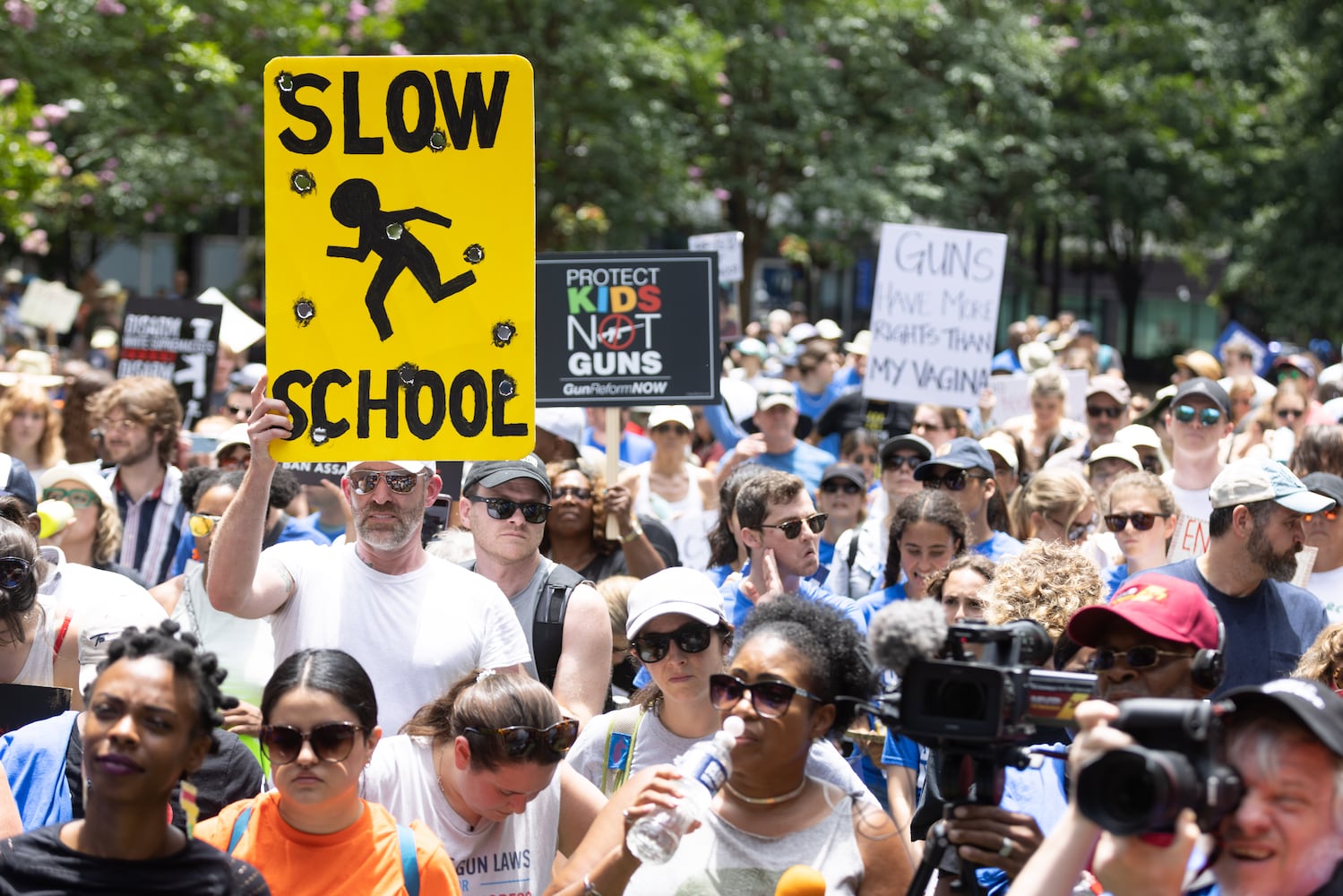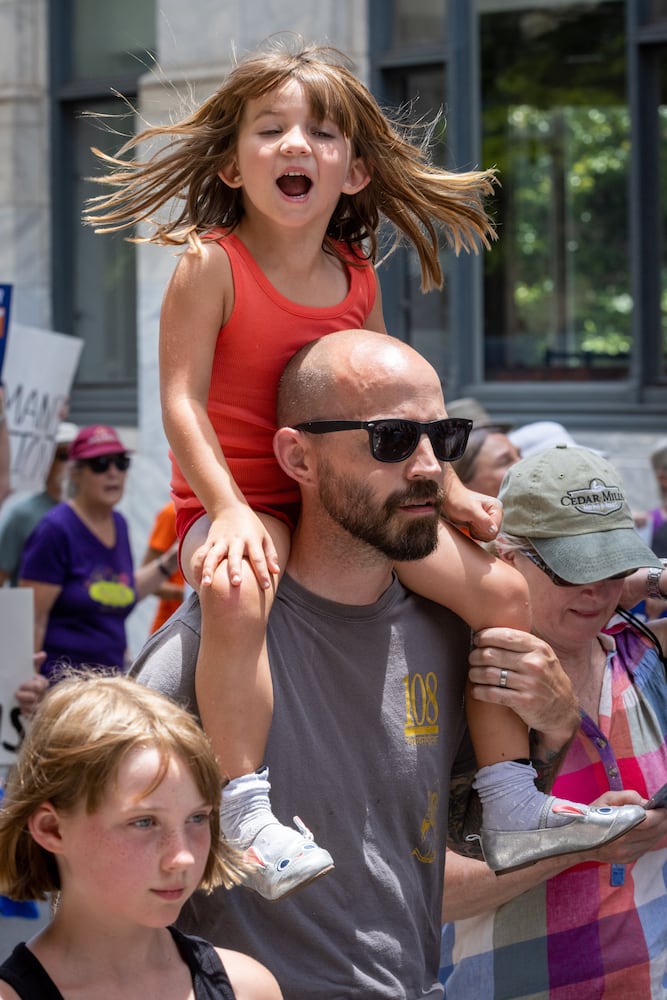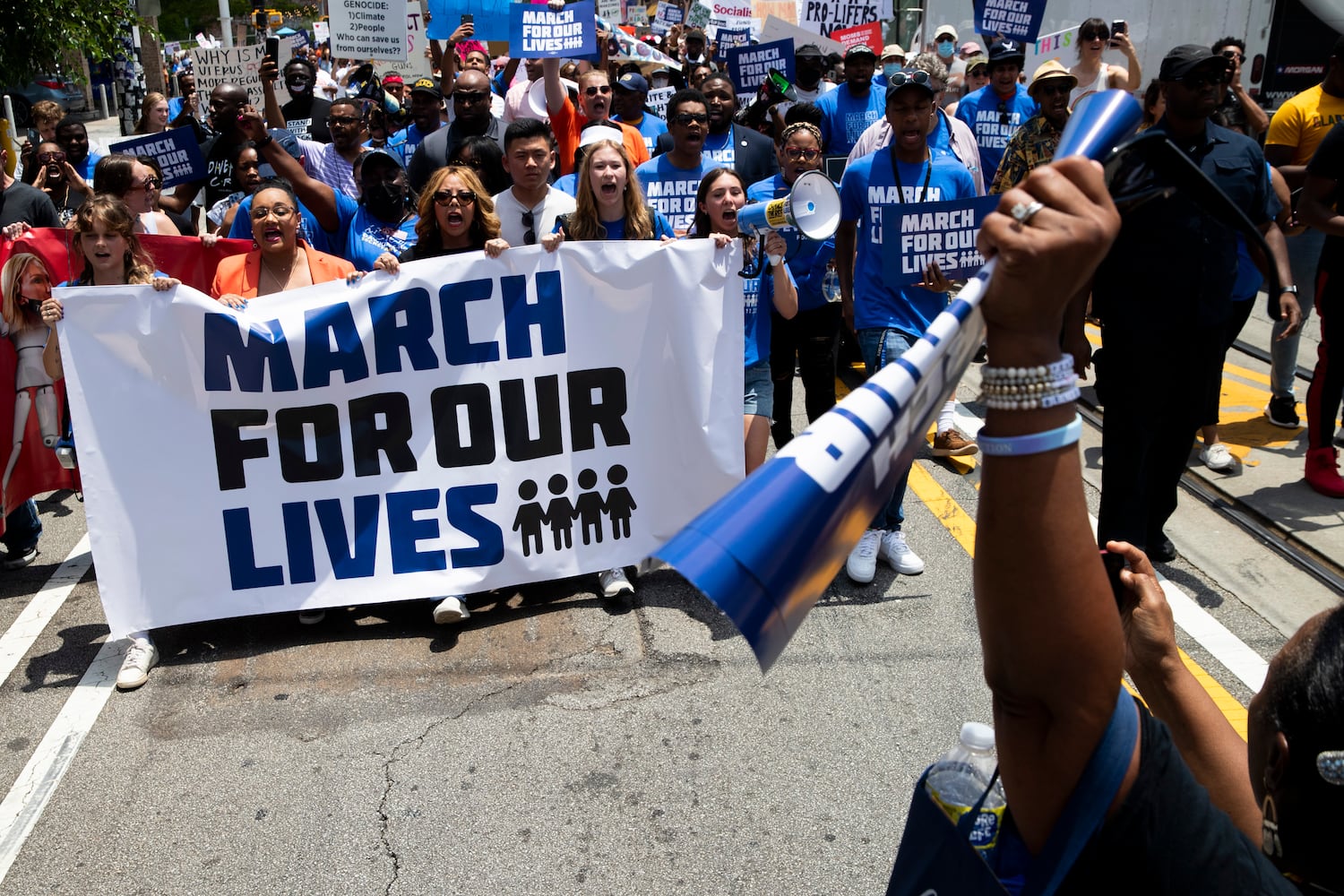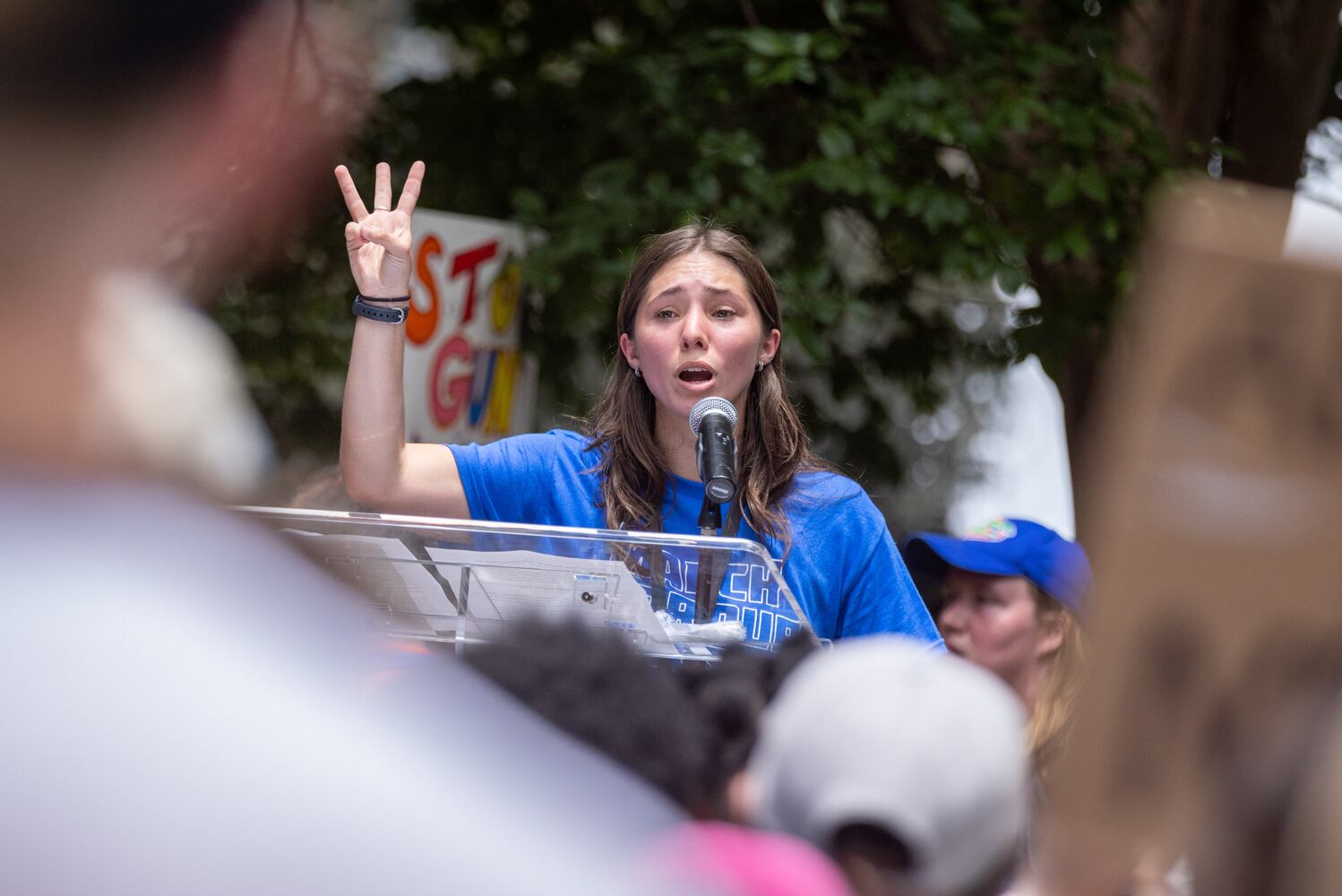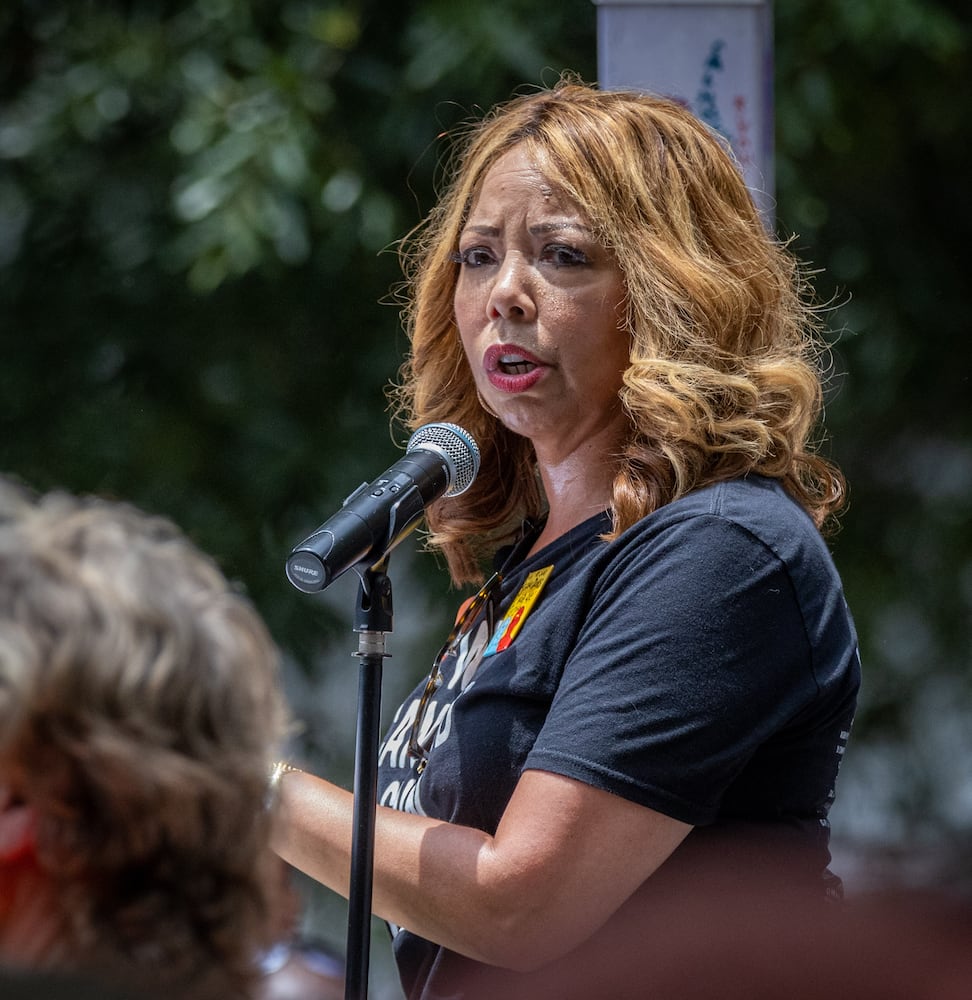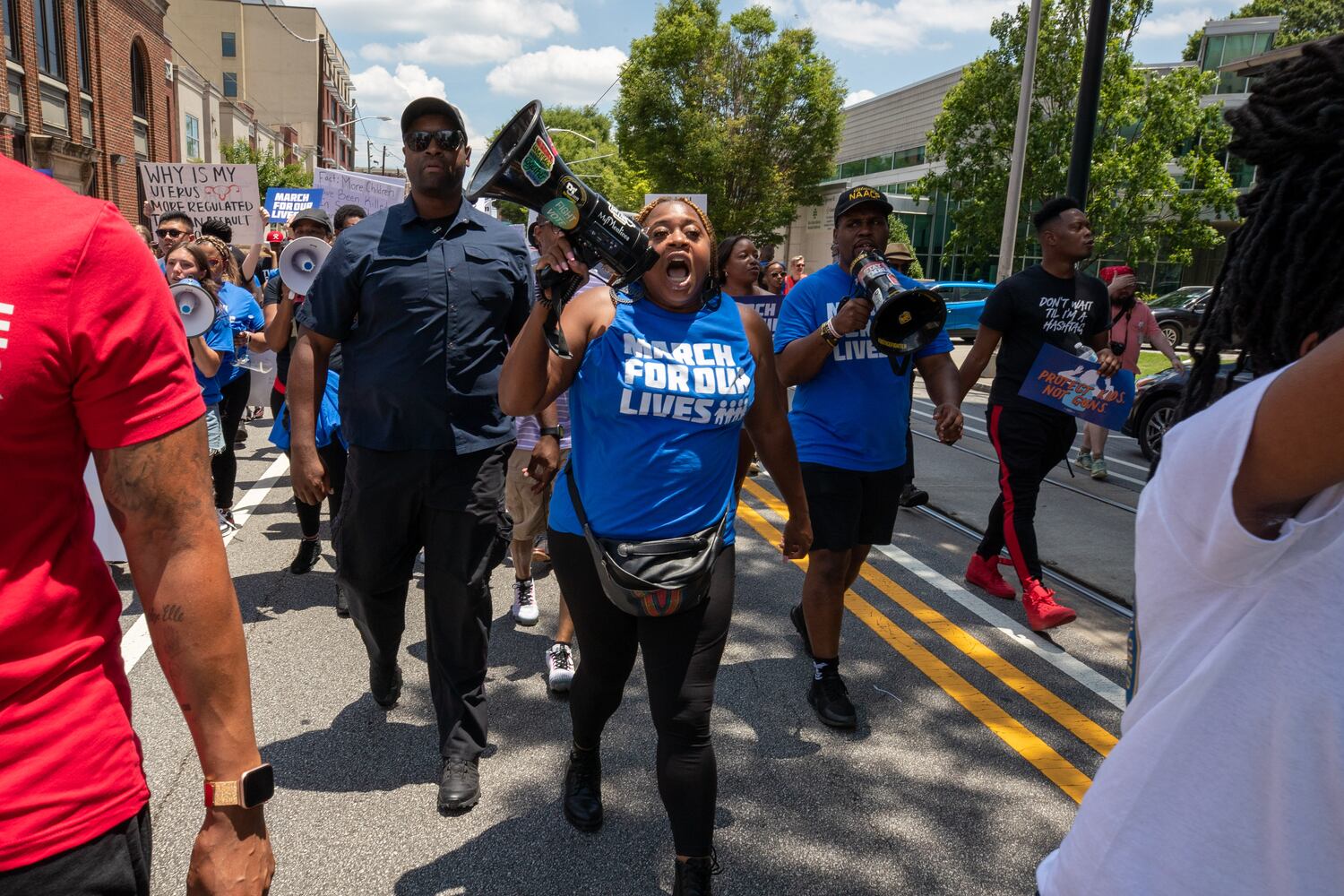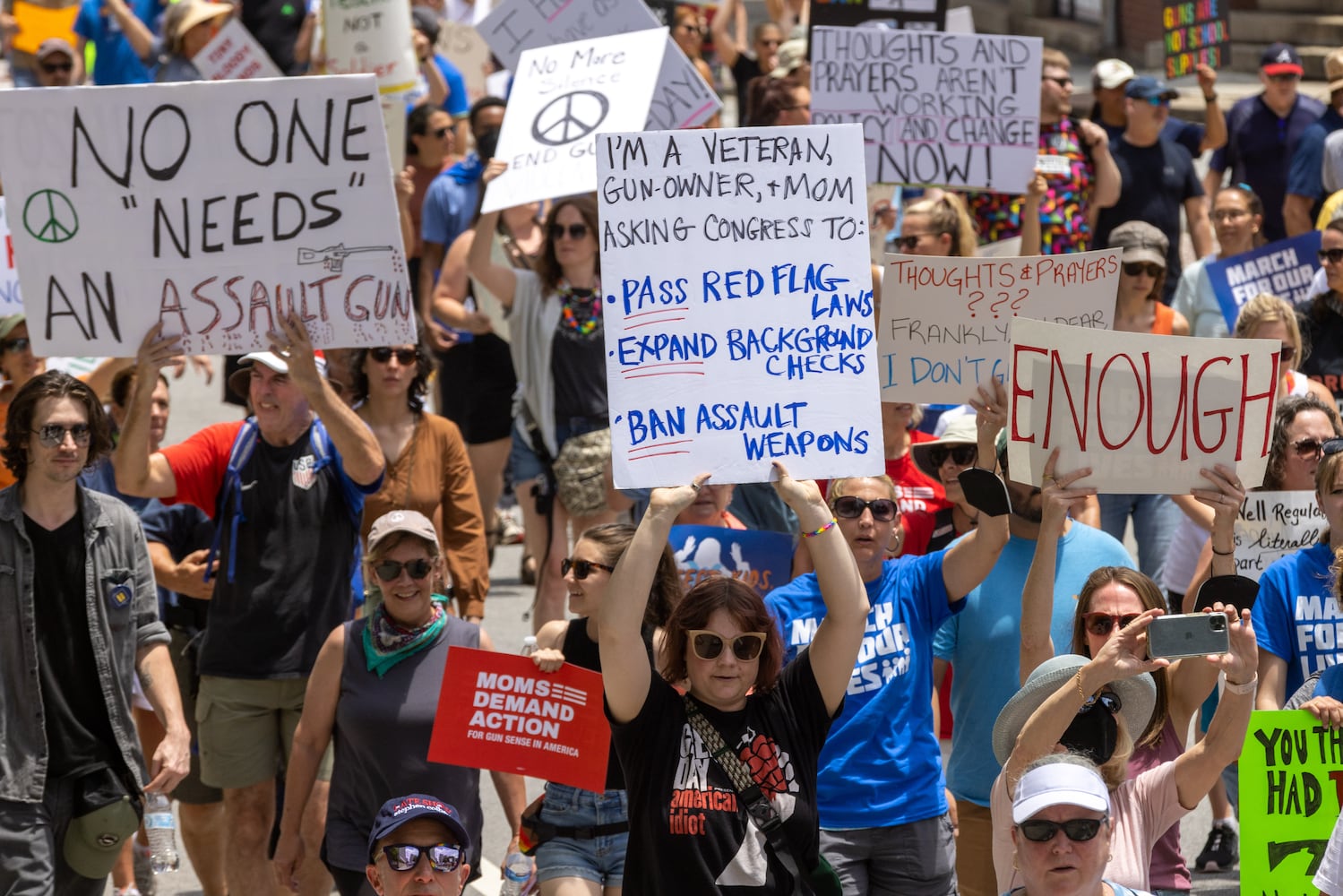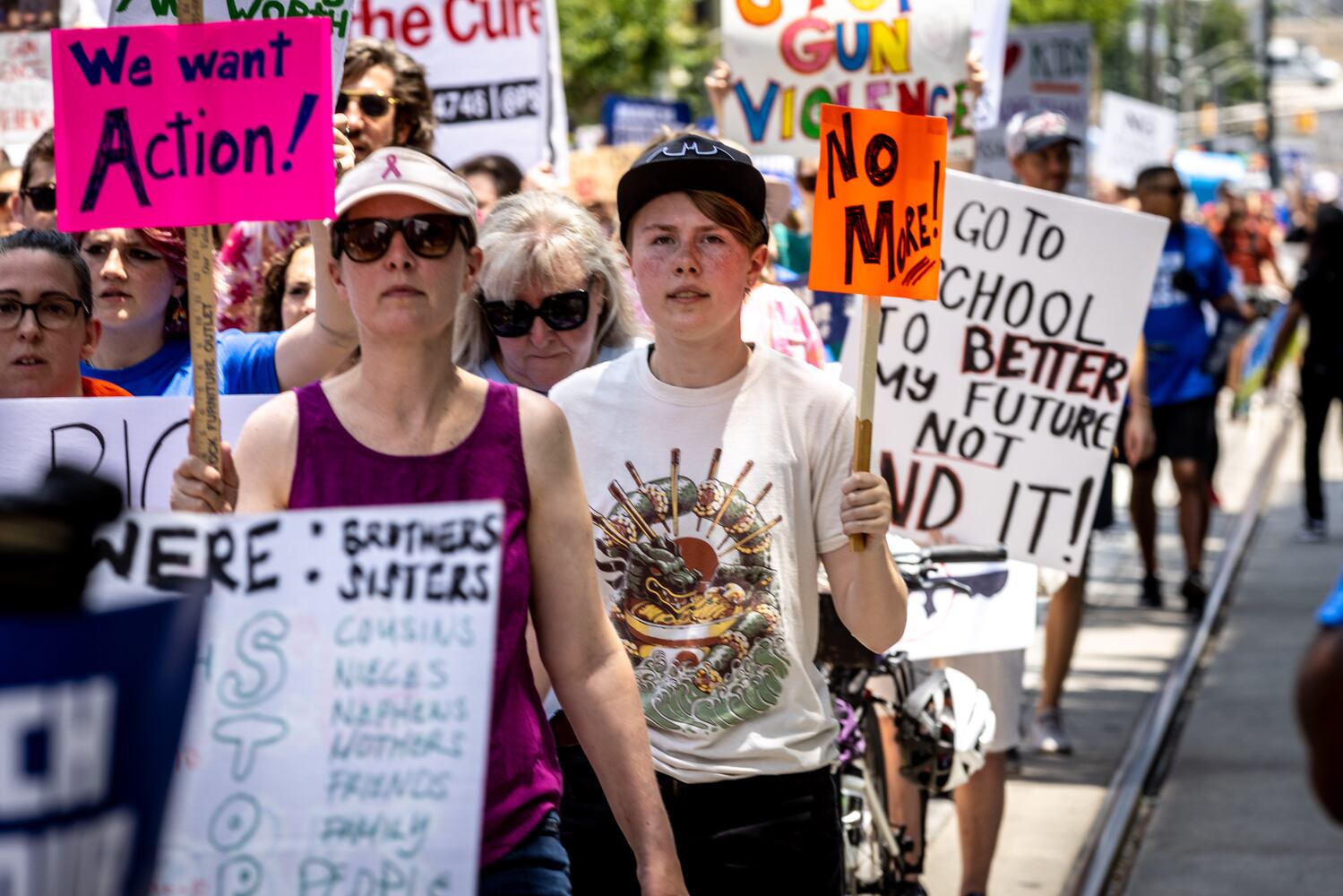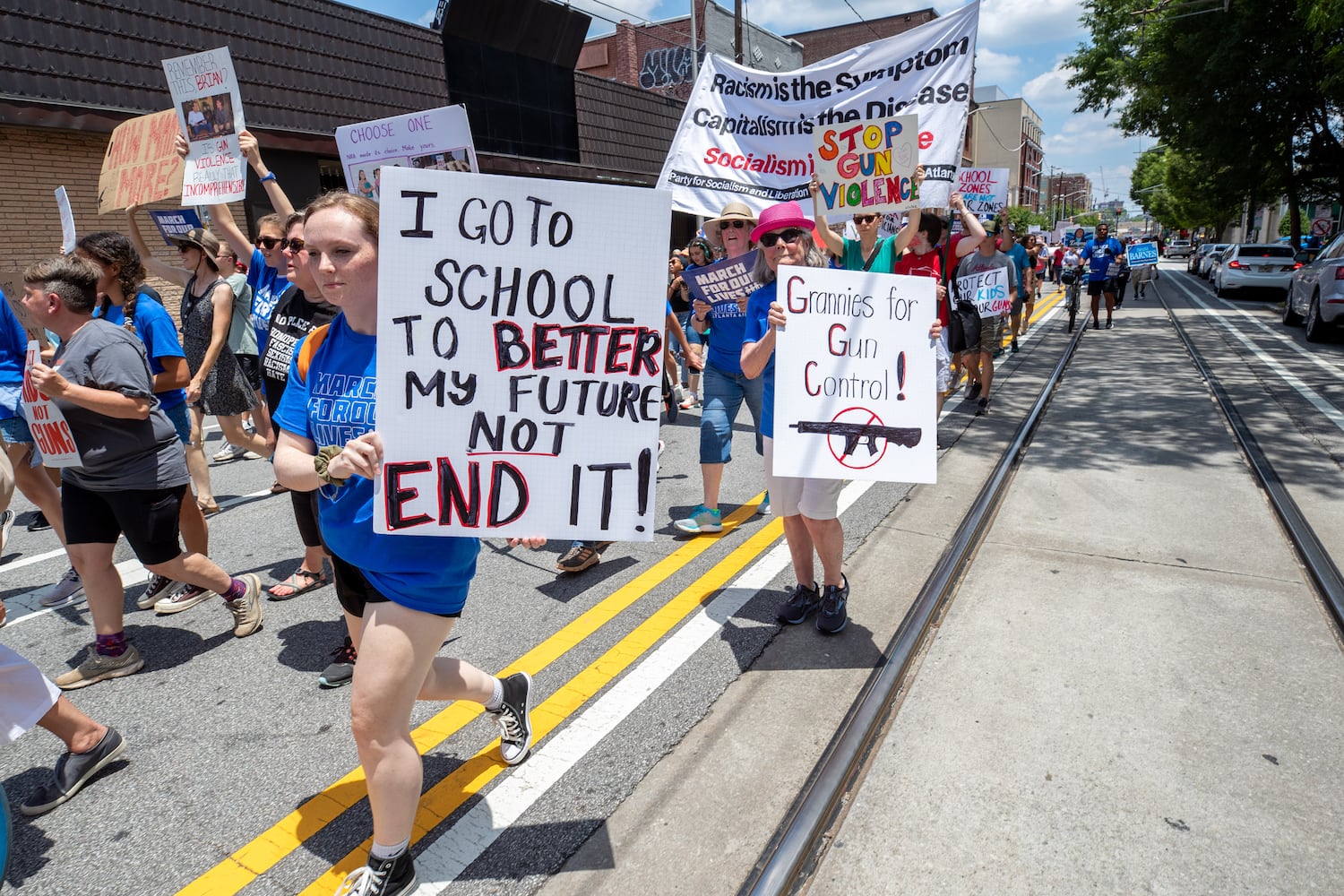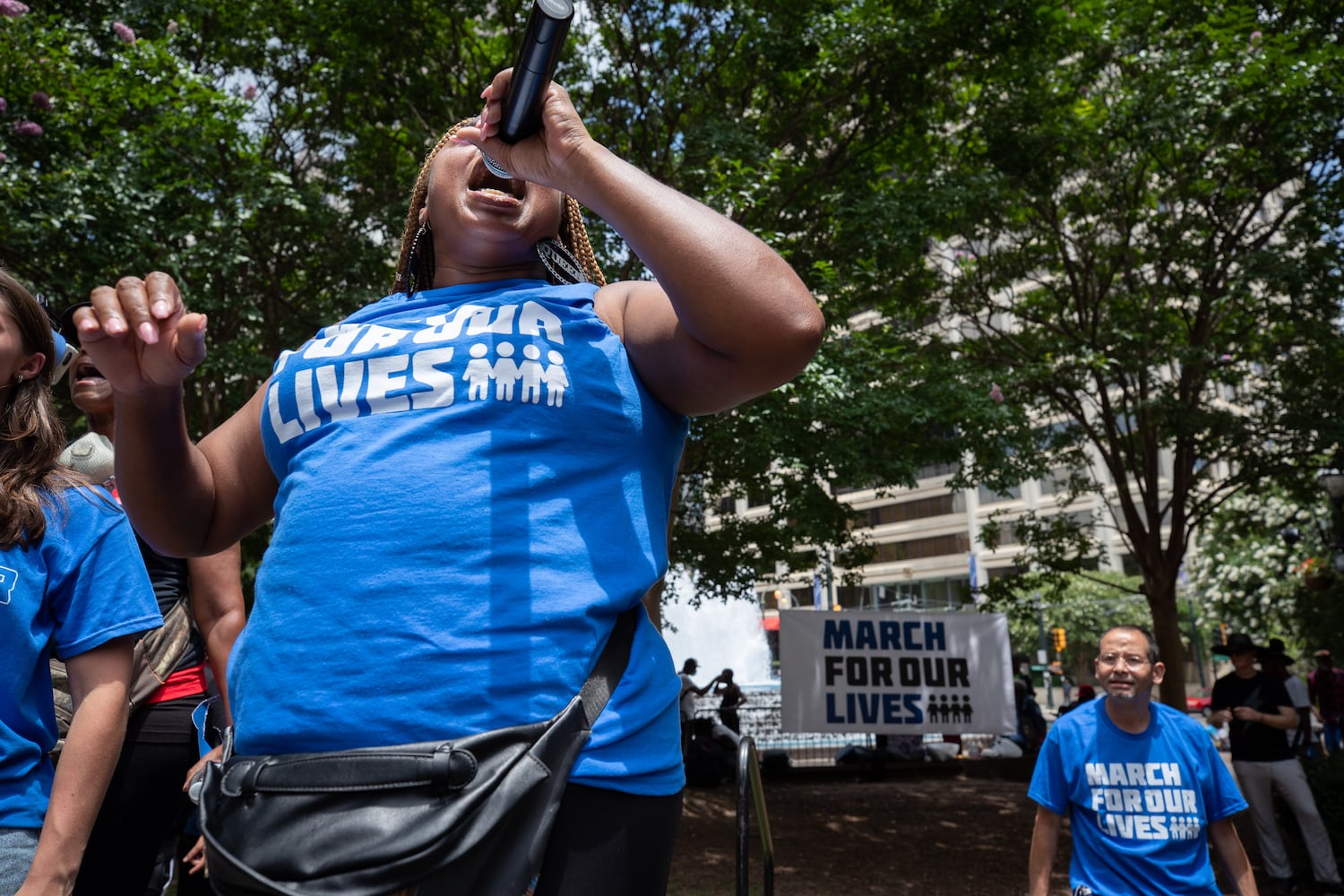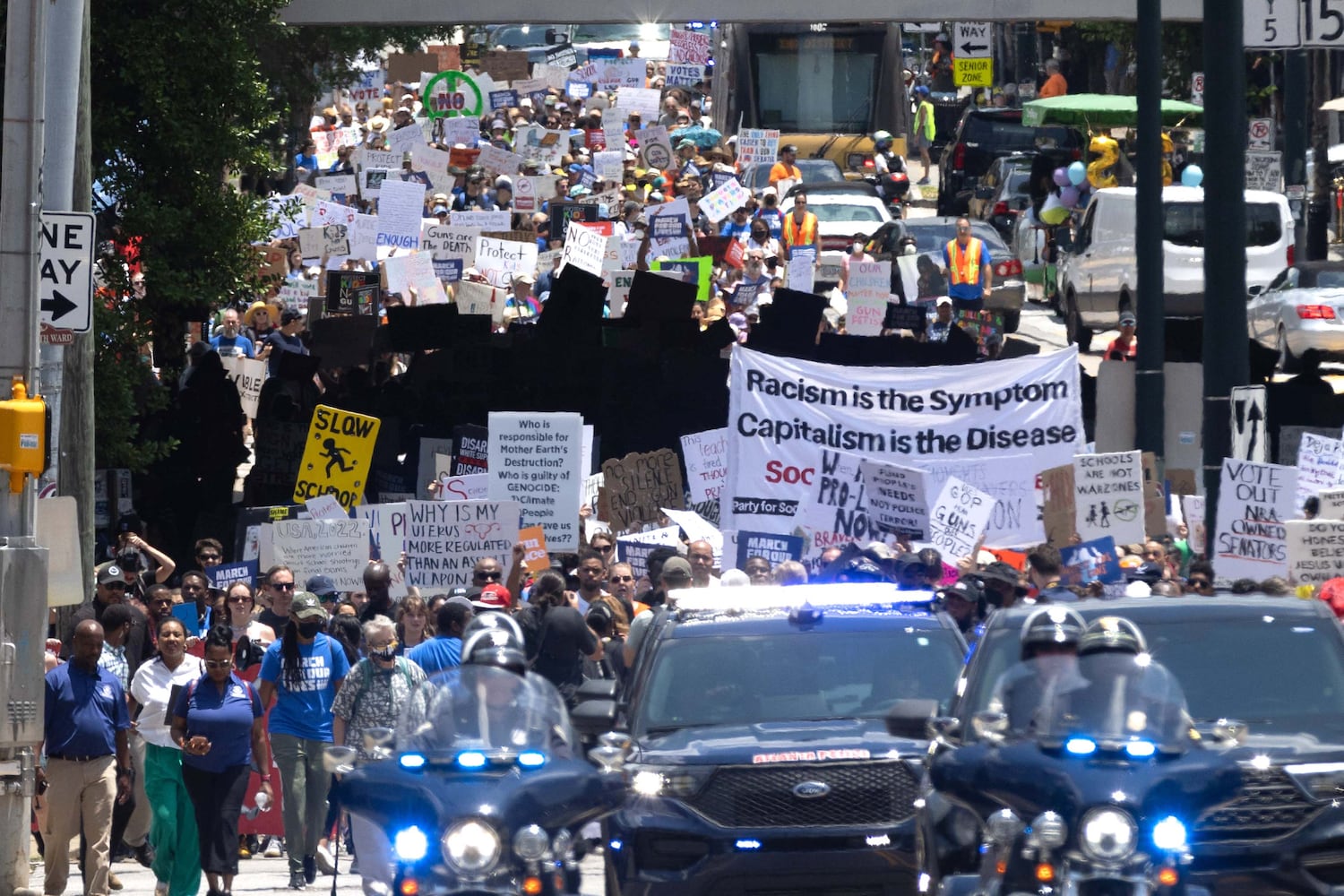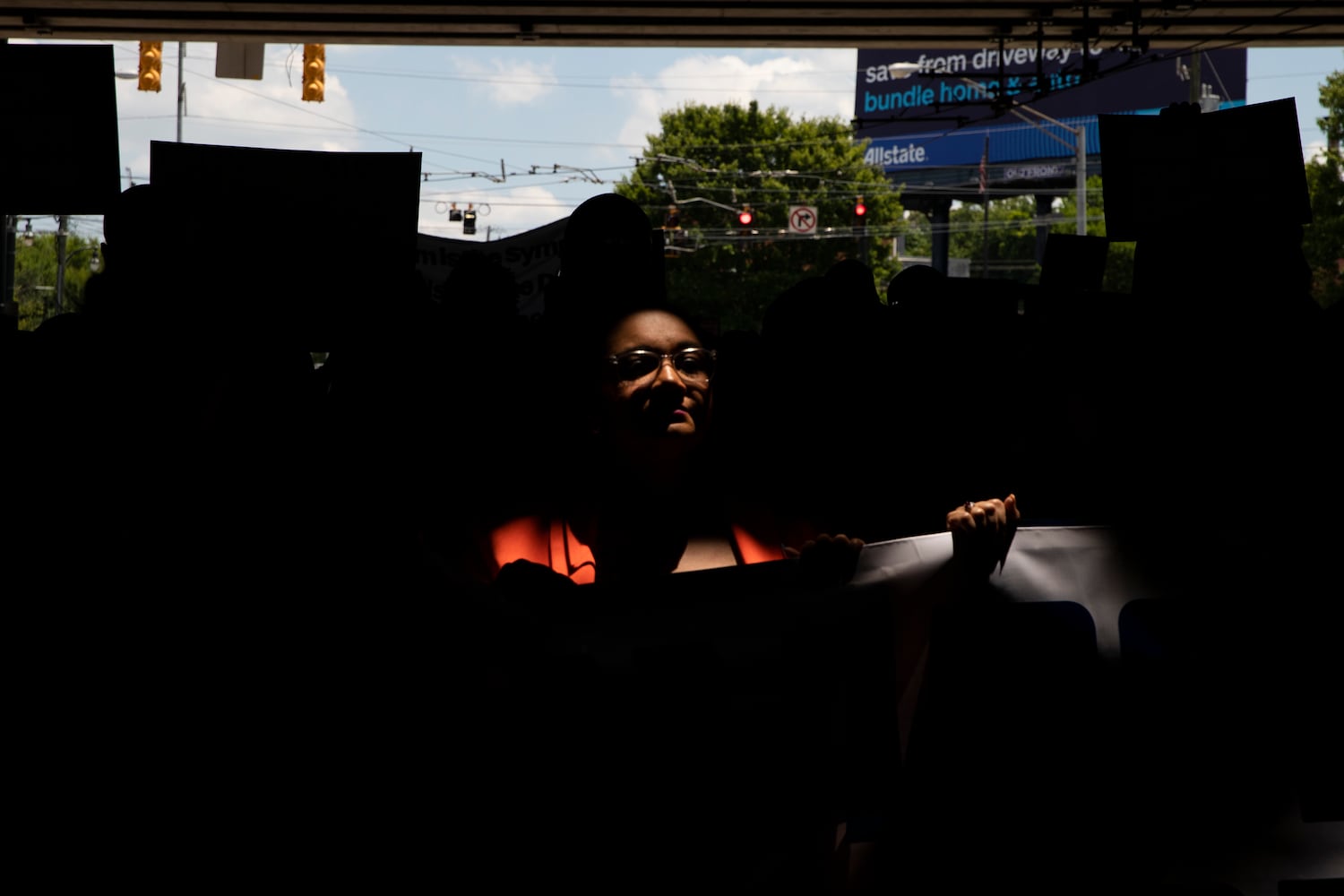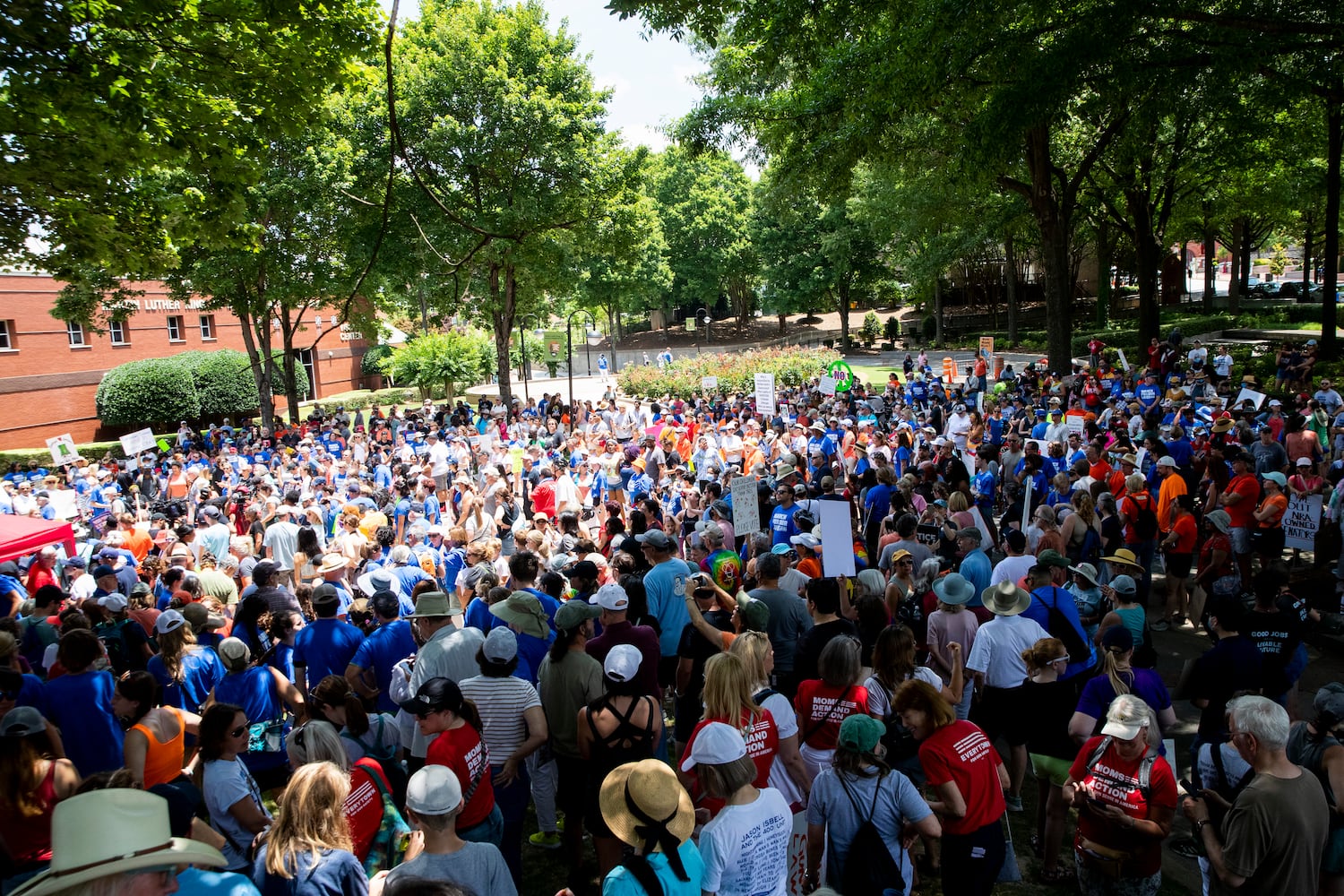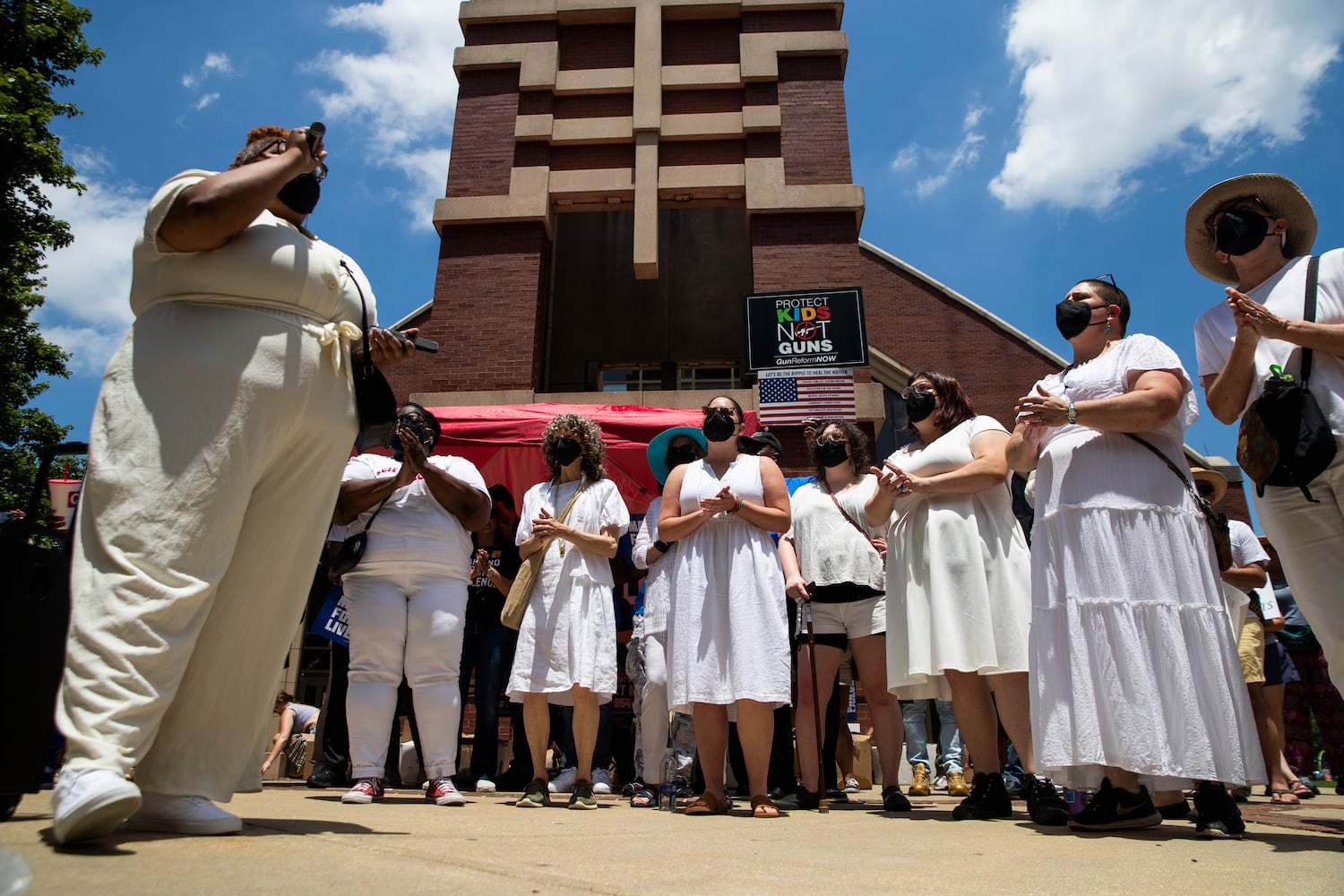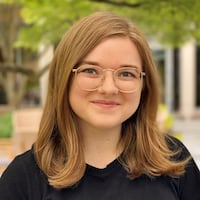The streets of Atlanta were filled with brightly colored signs and passionate chants calling for action against gun violence during the March for Our Lives on Saturday afternoon.
The protest occurred in tandem with hundreds of marches across the U.S. under March for Our Lives. The youth-led movement was founded three years ago as a response to the deadly shooting at Marjory Stoneman Douglas High School in Parkland, Florida. A recent wave of mass shootings, including at a Texas elementary school last month, spurred the latest call to action.
Leading the Atlanta march were many young protesters and organizers. The protest was organized in part by recent high school graduate Olivia Schramkowski.
“I started like most people, in 2018, back with the Parkland shootings,” she said. “Four years ago, I was just another protester at the march, and I decided that I wanted to get involved.”
Today, Schramkowski is a Georgia state director for March for Our Lives.
Two weeks ago, as she was preparing to walk across the graduation stage and finish her high school career, she got a call from March for Our Lives: It was time to organize.
“Most of the work was done by me and my co-director,” she said. “We both just graduated high school, and we spent two full weeks, night and day, getting everything we could.”
The result was a turnout of at least hundreds of people of all ages — Schramkowski said about 2,000 people RSVPed, but she thinks the number of people who took part was likely double that.
Marches against gun violence were planned in other cities across Georgia, including Marietta, Snellville, Gainesville, Columbus and Augusta. The national effort is a renewed push for gun control measures after recent deadly mass shootings — from the Uvalde, Texas, school where 19 students and two teachers were killed, to a Buffalo, New York, supermarket, where 10 people died.
Of those in attendance was 16-year-old Leah Cox. She brought her dad with her to the march to support a cause they both strongly believe in.
“I’ve grown up seeing these shootings on the TV screen, being reported for my entire life, and I think this is the least I could do to show my support,” she said. “Our schools should not be built to be bulletproof. You should be able to be in institutions of learning and not have to worry about gun safety and what could happen in the next moment.”
Like many protesters, Leah said she was deeply impacted by the Parkland shooting. She was in seventh grade at the time.
“I think hearing and seeing the coverage of this of the shooting, and the helicopters are hovering the school and seeing all the kids that had to run out and file out for safety, and hearing about how so many people died, I think it was really shocking to me,” Leah said.
Her father, Tyrone Cox, said he has always believed in gun control. When comparing today’s gun violence in schools to when he was in school, he says the difference is “unimaginable.”
“I think it’s just senseless,” he said. “And I think that all the politicians need to be held accountable.”
Many other parents were in attendance, both on their own and with their children in tow. One group, Moms Demand Action, had many protesters sporting their bright red T-shirts.
“I don’t want to be afraid for my children when they’re in college, but it happens on college campuses too,” mother Tommie Campbell said. “We just got to end this gun violence immediately. We can’t have the police afraid to go in and save children because they’re armed with more gun power than they are.”
Campbell, brought to tears while describing why she’s marching, said “something’s gotta be done.”
“I guess I understand that people are afraid, and they want to protect themselves, but I don’t think it’s acceptable to have machine guns,” she said.
The approximately one-mile march, which started at Ebenezer Baptist Church and ended at Woodruff Park, was punctuated by passionate speeches from community leaders and politicians, including U.S. Rep. Nikema Williams, U.S. Rep. Lucy McBath and Georgia NAACP President Gerald Griggs.
Nearly every speaker mentioned the late congressman and civil rights activist John Lewis. Lewis marched alongside protesters in 2018 in Atlanta’s first March for Our Lives. That year’s rally, which happened less than two months after 17 students and adults were killed in the Parkland school shooting, featured student survivors as speakers and drew about 30,000 downtown.
On Saturday, Williams told the crowd, “Each of you is building on the legacy of my friend, my mentor, my predecessor, the late John Lewis.”
Credit: Reann Huber
Credit: Reann Huber
“Y’all, I’m proud of y’all,” Griggs said as he looked out into the crowd at Woodruff Park. “John would be proud of you right now. Martin (Luther King Jr.) would be proud of you right now. This is the birthplace of civil rights. But I’m gonna let you in on a little secret: We’re also the birthplace of social justice. So let’s send a message to Washington. The message is, protect these young people’s lives.”
About the Author
The Latest
Featured
